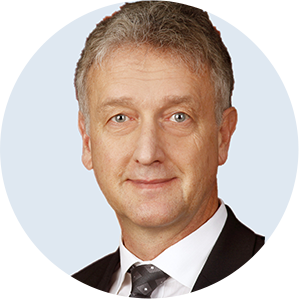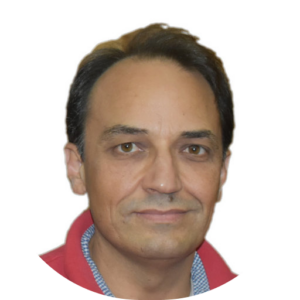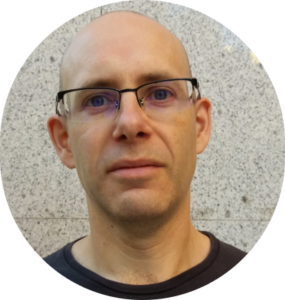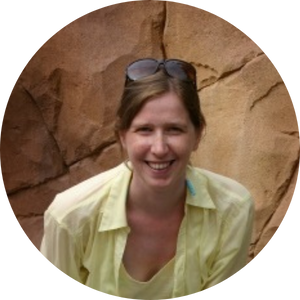
Dieter W. Fellner
Fraunhofer Institute
Dieter W. Fellner is professor of computer science at TU Darmstadt, Germany and Director of the Fraunhofer Institute of Computer Graphics (IGD) at the same location. He is also professor at TU Graz (Austria) and CEO of Fraunhofer Austria. His research activities over the last years covered efficient rendering and visualization algorithms, generative and reconstructive modeling, virtual and augmented reality, graphical aspects of internet-based multimedia information systems, cultural heritage and digital libraries as well as visual healthcare technologies. In the areas of computer graphics, cultural heritage and digital libraries he is a member of the editorial boards of leading journals in the respective fields and a member of the program committees of many international conferences and workshops. He is a member of the Academia Europaea and the German National Academy of Science and Engineering (acatech). He is also a Fellow of the German Computer Society (GI) and of the EUROGRAPHICS Association which has awarded him the Eurographics Gold Medal in 2018.
Title: Immersive Realities – From Mass Digitization to High-Fidelity Rendering
Abstract: The talk will address the challenges we face as well as current solutions to bring part of our real-world environment into the virtual world, interact with it, and bring it back into our real world. Particular emphasis will be given to industrial-scale solutions to 3D (actually nD, n>3) mass-digitization, Web3D-enabled interaction within digital worlds, and 3D color printing.
Leonel Morgado
Universidade Aberta

Full Professor at the Portuguese Open University, where he lectures on research methods, programming, and the use of virtual worlds, and a Senior Researcher at the independent research unit INESC TEC. He is also Vice-President of the Audit Board of the Portuguese Society of Videogame Sciences, Vice-President for Scientific Quality and board member of the international research association, Immersive Learning Research Network, and Standards Liaison Co-Chair of the IEEE Education Society Technical Committee on Immersive Learning Environments. His main research interest is the use and development of immersive learning environments, which he pursues since 2000. He authored over two hundred papers, in journals, conferences, and as book chapters, having successfully supervised over ten doctoral theses and over thirty master dissertations. He led and participated in multiple research projects, funded by partners from industry, civil society, national government, and the European Union. Before pursuing an academic career, he was business and technical manager of a hardware import, distribution, and retail company, terminologist for the localization teams of Microsoft Office 97 and Oracle InterOffice, created a company for technical translations and software localization, was language quality specialist for IBM/Lotus, a coordinator of a Web development team for museums and heritage sites, of a software deployment team for nation-wide surgery waiting list management, and manager of a cooperative extension team fighting the digital divide in rural villages.
Title: Immersive Learning Environments and Cointelligence
Abstract: This talk will address how immersive learning environments are being used and their relationship to cointelligence, using generative artificial intelligences as intellectual partners. Immersion is approach as a phenomenon arising from spatial, narrative, and agency conceptual dimensions, showcasing how this framework supports the interpretation and design of educational experiences. Using recent research findings on educational strategies and practices with immersive environments, the talk will illustrate how to plan and implement immersive learning cases grounded in the literature. The discussion will highlight current research challenges, aiming to inspire innovative educational practices and future research directions.

Miguel Otaduy
University Rey Juan Carlos
Received the BS degree in electrical engineering from Mondragón University, in 2000, and the MS and PhD degrees in computer science from the University of North Carolina, Chapel Hill, in 2003 and 2004, respectively. He is an associate professor in the Department of Computer Science, Universidad Rey Juan Carlos (URJC Madrid), where he leads the Multimodal Simulation Lab. From 2005 to 2008, he was a research associate with ETH Zurich. In 2022 he joined Meta Reality Labs Research as research scientist. In 2017 he co-founded SEDDI for the development of innovative digital solutions for the textile and fashion industries, and he was its Chief Science Officer until 2022. His research interests extend across physics-based simulation, covering algorithmic design or applied problems for virtual touch, animation, fashion, computational medicine, or fabrication. He has received two major excellence research grants in Europe: ERC Consolidator Grant (2017), ERC Starting Grant (2011).
Title: Learning reduced models for physics-based simulation in VR
Abstract: Virtual reality puts a hard constraint on the compute budget of physics-based simulations: they must be executed at interactive rates, and using minimal hardware resources that we can just wear. Reduced simulation models offer a solution to this challenge, by focusing the degrees of freedom of the simulation on a compact space that best describes the relevant physical phenomena. This talk will cover our experience on the design of expressive reduced spaces for VR simulation of bodies, hands, or cloth. Our methodology explores the use of neural representations at different stages of the modeling process, with the common theme of designing accurate nonlinear mappings from reduced space to the full-dimensional space. The talk will cover relevant research carried out while at Universidad Rey Juan Carlos.
Anne Bajart
European Commission

Anne Bajart is Deputy Head of Unit for Interactive Technologies, Digital for Culture and Education at DG CONNECT. She previously was Head of Sector for Robotics and Artificial Intelligence in DG CONNECT. She holds a PhD in electrical engineering. Before joining the European Commission, she worked as researcher, lecturer and project manager.
Title: EU strategy on Web4.0 and virtual worlds
Abstract: The talk will present the recently published European strategy for Web4.0 and Virtual Worlds, with a focus on standardisation and interoperability issues.
